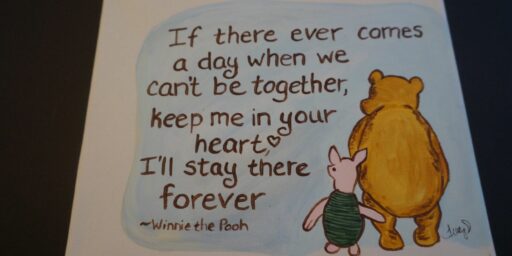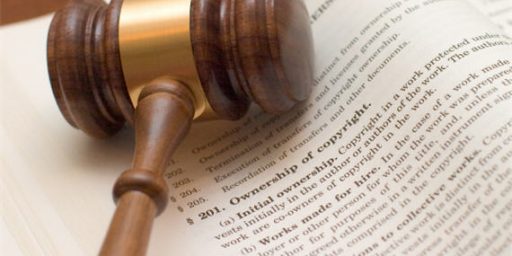FILE SWAPPING, REDUX
An e-mailer responding to my Comments posted on another site on this issue points out that I should not admit to having downloaded copyrighted music as I could conceivably be sued by the recording industry.
What theoretical liabilty could small-time downloaders face? This is an interesting question that I haven’t really considered much. My very limited understanding is that the industry has gone after the software companies (Napster, Grokster, Morpheus, AudioGalaxy, etc.) and those, especially on college campuses, posting volumes of music for free transfer. But, presumably, they could go after small users in the interest of “setting an example.”
What is the state of copyright law on such things? I understand, perhaps incorrectly, that it’s permissible to, for example, make a copy of a CD to give to a friend. Downloading files is the same thing, just writ large. At what point does a difference in degree constitute a difference in kind? It’s one thing to put up software and set up peer-to-peer networks with the explicit purpose of creating massive exchanges of copyrighted material; it’s quite another to download some files.





> “I understand, perhaps incorrectly, that it’s permissible to, for example, make a copy of a CD to give to a friend. ”
—
You can strike thru the word perhaps. Giving copyritten material to someone else is a no no. SELLING it is even worse, but you can’t even give it away.
You don’t own the song, you own the permission to listen to it. It is not transferable.
P
It is wrong when Metallica has to sleep in Motel 6 while on tour.